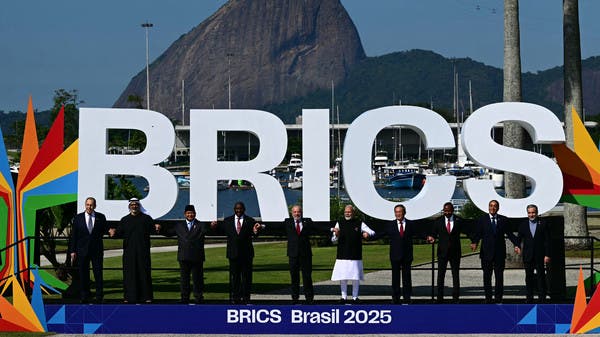When Moscow-based economist Vera Petrova brought her laptop to a corner table at our meeting spot in Rio de Janeiro’s upscale Leblon district, she immediately pulled up a set of alarming trade projections. “This is what happens when BRICS economies face a 60% tariff wall,” she explained, sliding the screen toward me. The numbers told a stark story: hundreds of billions in potential economic damage.
Two days later, those same figures would become central to the heated discussions at the 17th BRICS Summit, where I’ve been reporting from all week as member nations formulated their strongest collective response yet to former President Trump’s sweeping tariff regime.
“We express serious concern regarding the unilateral imposition of excessive tariffs that fundamentally undermine the rules-based multilateral trading system,” reads the official Rio Declaration, obtained by Mediawall.news ahead of its public release. The document represents an unprecedented alignment among the bloc’s diverse economies, from founding members like Brazil and India to newer additions like Egypt and the United Arab Emirates.
The summit’s emergency trade session, originally scheduled for 90 minutes, stretched past four hours as finance ministers debated retaliatory measures. Standing outside the conference hall, I watched Brazilian Foreign Minister Mauro Vieira emerge briefly to take a call, visibly frustrated. “They’re no longer discussing if they should respond, but how severely,” a Brazilian diplomatic aide told me, requesting anonymity to discuss sensitive negotiations.
Trump’s promise to implement tariffs of up to 60% on Chinese goods and at least 10-20% on imports from all other countries has sent shockwaves through global markets since his November 2024 election victory. The measures, set to take effect next month, have accelerated BRICS nations’ push toward de-dollarization and alternative payment systems.
Chinese President Xi Jinping, addressing summit attendees via translator, warned that “protectionist policies will create a lose-lose scenario for the global economy still recovering from pandemic disruptions.” According to World Bank estimates shared at the summit, Trump’s proposed tariffs could reduce global GDP by 2.5% over the next three years, with BRICS economies bearing a disproportionate impact.
On the summit’s sidelines, I spoke with Dr. Luiz Inácio Santos of Brazil’s Economic Research Institute, who explained that “this crisis has catalyzed BRICS cooperation more effectively than years of gradual diplomatic efforts.” His research suggests the bloc’s combined response could carry unprecedented economic weight, representing nearly 36% of global GDP in purchasing power parity terms.
The summit marked significant progress on the BRICS Payment System (BPS), an alternative to SWIFT that would allow member nations to conduct trade in local currencies, bypassing the dollar entirely. Russian Central Bank documents distributed to delegates and reviewed by Mediawall.news indicate the system has already processed trial transactions valued at over $12 billion since January.
“Five years ago, de-dollarization was theoretical. Today, it’s operational policy,” Indian Finance Minister Nirmala Sitharaman told me during an exclusive interview. When pressed on specific counter-measures, she remained diplomatic but firm: “We prefer cooperation, but we’ve prepared robust options to protect our economic sovereignty.”
The United Nations Conference on Trade and Development (UNCTAD) representative at the summit presented data showing that Trump’s first-term tariffs between 2018-2020 ultimately increased costs for American consumers by approximately $51 billion annually. The current proposed tariffs would dwarf those figures, with UNCTAD projecting consumer price increases of 12-18% on affected goods in the American market.
Walking through the massive Rio Centro convention complex, I observed technical teams from each member nation working around the clock on what South African officials described as “contingency trade routing” – essentially, creating new supply chains that minimize exposure to American tariffs. Engineers from China, Russia, and Brazil demonstrated software designed to optimize trade paths through BRICS-friendly jurisdictions.
“We’re not just responding to Trump,” explained Mohammed Al-Jasser, the Saudi delegate I spoke with after the morning session. “We’re accelerating the inevitable rebalancing of global economic governance.” Saudi Arabia, though traditionally aligned with U.S. interests, has significantly increased its participation in BRICS initiatives since joining in 2023.
The summit also saw Iran, a newer BRICS member facing decades of U.S. sanctions, sharing expertise on sanctions-resilient banking systems. “Countries that never imagined needing such knowledge are now taking detailed notes,” observed a European diplomat attending as an observer.
Beyond retaliatory tariffs, the BRICS nations are exploring more creative counter-measures. A working group led by Brazilian and Indian officials has proposed targeted restrictions on critical minerals essential for American technology and defense industries – including rare earths, cobalt, and lithium, where BRICS nations control substantial global supply.
“The U.S. tariff approach assumes a world that no longer exists,” explained former WTO negotiator Miguel Dominguez, who advised several BRICS delegations. “Global supply chains have become too interdependent for simplistic trade barriers to achieve their intended outcomes.”
What makes this BRICS response particularly significant is its unified nature. Previous American trade actions typically faced fragmented responses, but Trump’s comprehensive tariff approach has erased many traditional divisions between developing economies.
As the summit concludes today, participants will finalize an emergency framework for trade resilience that includes expedited implementation of the BRICS currency reserve arrangement, enhanced customs coordination, and new investment channels designed to offset American market access limitations.
The U.S. Treasury Department declined to comment specifically on the BRICS declarations when contacted yesterday, but pointed to Secretary Janet Ferguson’s recent congressional testimony where she acknowledged that “trade actions will inevitably trigger responses that require careful consideration.”
For Petrova, the Russian economist I met at the beginning of the summit, the outcome exceeded her expectations. “This isn’t just rhetorical unity – it’s backed by concrete financial mechanisms,” she noted as we reviewed the final communiqué draft. “Whether these measures can truly counterbalance American economic power remains uncertain, but the foundation being laid here is unprecedented.”






